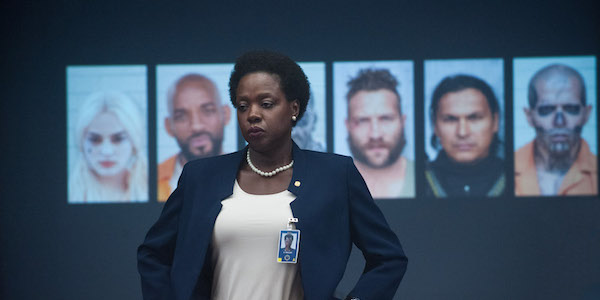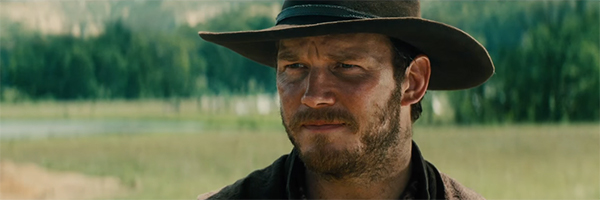WATCH BOX OFFICE MOVIES FOR FREE
Groundhog Day Was Originally Written As A Much Darker Film

Harold Ramis' Groundhog Day is a movie that many people watch annually on February 2nd, but this year has a special significance. The 1993 film is celebrating its 25th anniversary in 2018 - and it's certainly a feature worth celebrating and investigating. As die-hards know, it's a feature with a complicated backstory where a lot of changes were made throughout production - and apparently that included a draft with a much darker opening for the story that just dived straight into the narrative. Producer Trevor Albert recently explained,
The opening was darker. It required the audience to sort of go with that [premise]. I loved that. I think it probably would have been a very good movie in the original form, but I don't think it would have been as acceptable.
The dark first act that Trevor Albert is referring to is a version of Groundhog Day that didn't waste any time letting the audience get to know Phil Connors or understand how he arrived in Punxsutawney, Pennsylvania. Instead, according to an interview with Variety, the original draft of the script threw audiences right into the middle of the time loop. Apparently Albert was a big fan of this approach, but it wasn't popular enough to make it to the final draft.
Adding in his thoughts, screenwriter Danny Rubin offered a detail that one might guess could have led to the approach being axed: evidently there was an idea that would have seen Groundhog Day feature an omniscient narrator explaining things to the audience throughout the story. Said Rubin,
There was a voice-over that kind of helped the audience along, so they wouldn't get too disoriented.
Rather than risking audience disorientation or a narrator crutch, Groundhog Day axed both, and may very well be the better movie for it. There is a wonderfully natural way that the story progresses in the film, with Phil Connors first adjusting to and understanding his situation, then exploiting it, and then feeling crushed by it. The earliest draft would certainly have been very different, and may have had some great ideas of its own, but it's hard to argue with the finished product.
As alluded to - and covered in Variety's piece - Groundhog Day was a movie that went through a lot of revisions during its development, mostly because of clashes regarding tone. While director Harold Ramis envisioned the story to be more in line with his other feature efforts like Caddyshack and National Lampoon's Vacation, star Bill Murray had a much greater appreciation for the more philosophical elements of the narrative and pushed for their inclusion. By the end of production, the experience created a deep rift between Murray and Ramis and the two men didn't speak for nearly 20 years. Thankfully, they managed to patch things up before Ramis passed away in 2014.
Ultimately Groundhog Day is truly a brilliant film because of the way in which it balances both of Bill Murray and Harold Ramis' demands. It's not only outrageously funny, but it's also a genius existential exploration that builds off the work of thinkers like Jean-Paul Sartre and Friedrich Nietzsche. If you didn't watch it on February 2nd this year, the good news is that today is actually the official anniversary, so do yourself a favor and pick out your Blu-ray/DVD and give it a watch.

Harold Ramis' Groundhog Day is a movie that many people watch annually on February 2nd, but this year has a special significance. Subscribe To Groundhog Day Was Originally Written As A Much Darker
Movies that originally had much darker endings - looper.com

Feb 02, 2018 · How To Understand The Philosophy Of 'Groundhog Day' And Live Life By Its Message The director Harold Ramis didn't intend for his movie Groundhog Day to be heralded by religious thinkers as an
Groundhog Day (film) - Wikipedia

But as with pretty much every film, it all could have been very different. In the case of Groundhog Day though, we've got an idea as to just how different. That's because the man who came up
Five Movies That Originally Had Much Darker Endings

A subreddit for sharing those miniature epiphanies you have that highlight the oddities within the familiar.
How To Understand The Philosophy Of 'Groundhog Day' And - NPR

One of the greatest comedies ever made, Groundhog Day was written by Danny Rubin and directed by Harold Ramis—and as is often the case, the two filmmakers had very different ideas about where
How Groundhog Day Changed Dramatically During Development

Groundhog Day is a 1993 American comedy film directed by Harold Ramis and written by Ramis and Danny Rubin.It stars Bill Murray as Phil Connors, a TV weatherman who, during an assignment covering the annual Groundhog Day event, is caught in a time loop, repeatedly reliving the same day.
Iiiiiiit's GROUNDHOG DAY! (Plus 25 Years) ⋆ Film Goblin

Here are five movies that originally had much darker endings. Groundhog Day - Rita is stuck in her own time loop The ending to a movie is always subject to what the director and writers
Groundhog Day would have been a much darker movie if it had

Jan 31, 2017 · I think "Groundhog Day" is the best movie ever made. The story of a cursed man gaining redemption is my favorite. The 1993 film starring Bill Murray and Andie MacDowell is like classic literature

Groundhog Day takes something of a darker turn when you look at it that way; I believe Columbia Pictures got nervous at this kind of mind-fuck showing up in one of their romantic comedies and put out the official line that Phil was only stuck in there for two weeks or something like that. No, Phil was trapped in that day for a long, long time.
Slowik: Here's why 'Groundhog Day' is the greatest movie ever

Groundhog Day Was Originally Written As A Much Darker Film

And in doing so, he's revealed that the movie was originally a much darker beast than the one we got. Note that all quotes are taken from the book How To Write Groundhog Day,
Groundhog Day: how the film changed dramatically during

0 comments:
Post a Comment